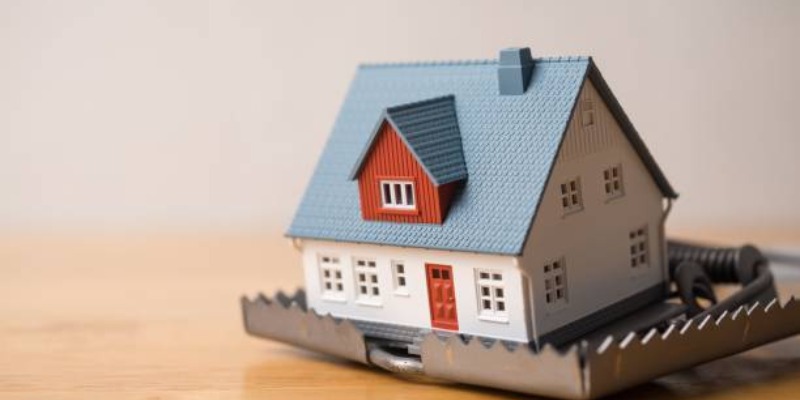Avoiding Rental Scams: Red Flags Every Renter Should Know
Renting a house ought to be thrilling—a new beginning, a new start. But hidden pitfalls can make that thrill become a nightmare. I know this firsthand after nearly signing over a deposit for a "dream apartment" that didn't actually exist. Now, I'm passing along the warning signs I wish I had spotted earlier. Whether you're a new tenant or a pro, these tips may save you time, money, and frustration.
1. The Price Seems Too Good to Be True.
If the apartment is listed well below market price, halt. Scammers often lure victims with a fake deal. I've noticed an advertisement for a downtown loft 40% cheaper than similar ones. The catch? The owner "had to sell fast." Real landlords rarely slash prices so aggressively. Research local prices online, and if the deal looks suspicious, walk away.

2. No Written Lease Agreement
A handshake deal is simple, but it's a disaster waiting to happen. Without a written lease, you have no record of terms. I spoke with someone who paid several months' rent up front on a verbal deal, then got evicted after several weeks. Always insist on a signed contract. If the landlord refuses to sign, run.
3. Missing or Incomplete Lease Terms
A valid lease must include all the details: the dates to pay rent, the policy on pets, and the policy on maintenance. If yours omits necessary information or employs confusing terminology, it's a warning sign. I once read a lease that stated, "Tenant must abide by house rules," but the rules were never shown. Ask questions, and if the answers seem fishy, continue the search.
4. Large Initial Charges
Thieves often bully tenants into handing over "security deposits" or "application fees" before they even get to view the property. Legitimate landlords can demand a deposit, but it must never exceed one month's rent. I heard about a scam in which tenants paid $3,000 up front for a property they were never allowed to view. Always check if the property exists before handing over any cash.
5. The Landlord Won't Meet in Person
If the person renting the place avoids face-to-face meetings, be suspicious. Real landlords want to screen tenants and show their property. I dealt with a “manager” who only communicated via text and refused to video chat. Turns out, they weren’t even the owner. Always meet the landlord or agent in person.
6. Stolen or Fake Photos
Scammers use photos from real postings to make fake postings. Check for discrepancies: mismatched furniture, outdated, or low-quality photos. I noticed one listing had a kitchen photo and the time on the clock was 3:00 PM in one photo and 9:00 AM in another. Perform reverse-image search on images on the internet to ensure they're genuine.

7. Pressure to Decide Now
"If you don't sign today, someone else will get it!" This is a classic scam ploy. Real landlords give you the time to read the lease carefully. I almost fell for this when a so-called "landlord" claimed that three other applicants were about to pay. Take your time—scammers hate delays.
8. No Background Check
Landlords ought to conduct credit or reference checks to vet tenants. If they don't, that's a red flag. I know a renter who was approved on the spot with no paperwork. Afterwards, they found out the apartment was involved in a rental scam ring. A legitimate landlord wants to know whom they're renting to.
9. Unprofessional Communication
Typos, hostile messages, and unprofessional emails usually signal a scam. I once got a rental offer that was full of spelling mistakes and ALL CAPS demands. Real professionals write with clarity and respect. Trust your gut—if something doesn't feel right, it probably isn't.
10. The Property Isn't Listed Elsewhere
Research the address online. If it's listed on just one site or social media, investigate further. I found a "luxury condo" on Instagram with no indication of it on real estate sites. Ask for proof of ownership, like a property tax bill, to ensure legitimacy.
How to Protect Yourself
Research the landlord: Look up their name and property online. Check reviews or complaints.
Visit the property: Inspect it in person. Ask neighbors about the landlord’s reputation.
Use secure payments: Never pay in cash, crypto, or wire transfers. Use traceable methods like a check.
Consult a lawyer: If the lease feels complicated, have a professional review it.

Next Steps If You’ve Been Scammed
If you’ve already lost money, report the scam to local authorities and platforms like the FTC. Share the story to warn others—scammers thrive in silence.
Finding Safe Housing Starts With Awareness
Renting doesn’t have to be risky. By spotting these red flags, you’ll protect yourself from fraud and find a home that’s safe, legal, and truly yours. Stay vigilant, ask questions, and never let urgency override caution. Your peace of mind is worth it.